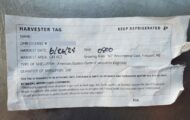The Center for Food Safety (CFS) has issued a report detailing food industry front groups, which perform public relations to improve opinion and push agendas. Many in the food industry form groups that claim to represent consumers or farmers when they are funded by the industry itself. Members of those groups write opinion pieces and offer expert advice without disclosing their conflict of interest on the issues.
Front groups are different from trade groups, which are formal lobbying organizations such as the National Cattlemen’s Beef Association and the American Beverage Association. Front groups try to hide their motives, according to CFS, and try to create positive impressions.
The report states that “the main goal of any front group is to control the public discourse. Front groups are created in direct response to criticism being leveled at a sector of the food industry. Instead of fixing the myriad problems they’ve created, the food industry’s response is to change the way these problems are talked about, to downplay them, to discredit critics, and otherwise make the problems disappear from the public’s eye.”
Tactics used by these groups include pretending the group represents the typical consumer. These groups are called “astroturf”, as opposed to grassroots movements, because they do not rise organically around an issue. Front groups also use ad hominem attacks, calling opponents names. They also pay for research and place stories about science in the media without disclosing conflict of interest. The groups prey on consumers’ fears and portray advocacy groups as “fearmongers”, calling advocacy groups “unAmerican” to distract from the issue.
One of the front groups the report highlights is the “No on 37” campaign that helped defeat labeling of genetically engineered foods in California. That front group was comprised of pesticide and processed food companies, which pretended to be a “coalition of family farmers, grocers, food companies, small businesses, and others.” No on 37 pushed the narrative that labeling GMO foods would increase food costs, despite lack of data to support that claim. Another group, called “New Yorkers for Beverage Choices” was founded by the soda industry to push back against proposed laws that would limit the sizes of soft drinks.
Consumers can identify front groups by doing a little research. Front groups often use names such as “alliance” and “council” and “coalition”. Attacking actual consumer groups such as Consumers Union and name calling are other clues. Examples of front groups include; the American Council on Science and Health, which tries to control the debate between food and health; the Center for Consumer Freedom, which began by funding from the tobacco company Phillip Morris; and the Nestle Nutrition Institute, which marketed infant formula in developing nations, undercutting breastfeeding groups.




